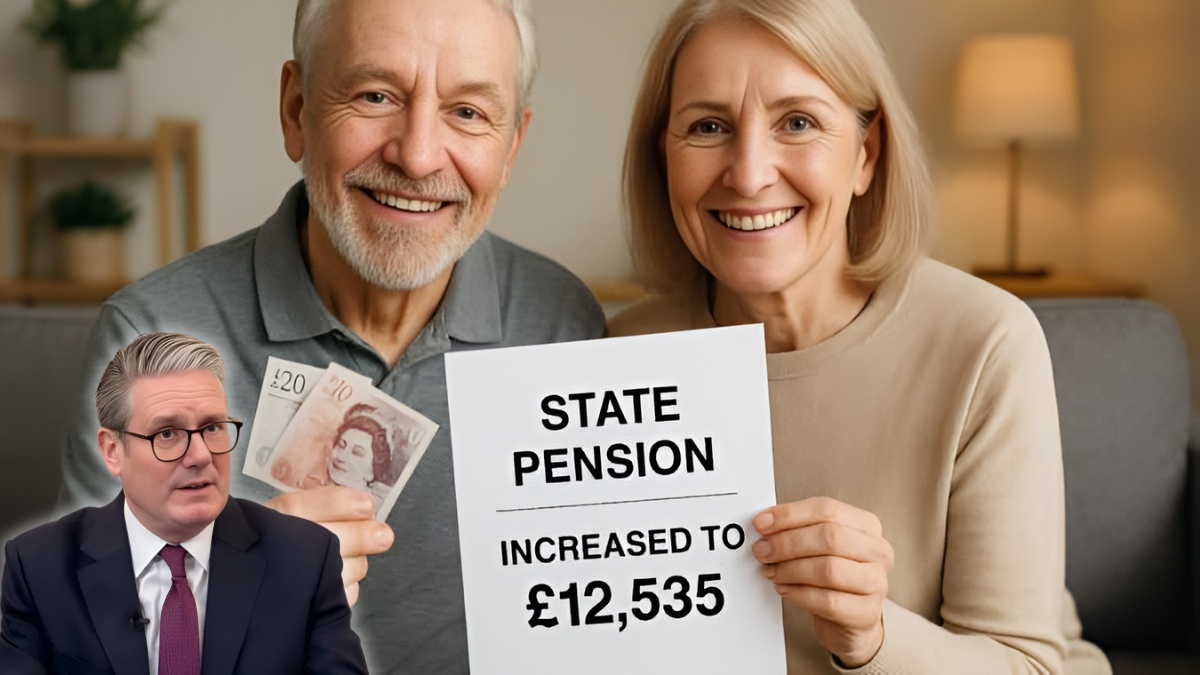The UK Government has confirmed a significant rise in the State Pension, with the weekly payment set to increase to £231.36 from 28 October 2025. Announced by the Department for Work and Pensions (DWP), this marks one of the largest boosts in recent years, following the government’s Triple Lock policy. The policy ensures that pensions grow annually in line with wages, inflation, or a minimum of 2.5 percent.
This increase will benefit millions of pensioners across England, Scotland, Wales, and Northern Ireland, offering much-needed financial support as households continue to face high energy costs, inflation, and other living expenses.
Why the State Pension Is Increasing
The Triple Lock, introduced in 2010, guarantees that the State Pension rises each year by the highest of three measures: consumer inflation, average wage growth, or 2.5 percent. In 2025, the rise is largely driven by strong wage growth, which reached nearly six percent earlier this year the highest level since before the pandemic. According to the DWP, this increase will help older citizens maintain their purchasing power and meet essential costs.
A DWP spokesperson said that the new weekly rate reflects the government’s commitment to protecting pensioners’ income and ensuring that older people share fairly in the nation’s prosperity, particularly during challenging economic times.
Who Will Benefit from the Increase
The increase applies automatically to both the New State Pension for those who reached pension age after April 2016 and the Basic State Pension for earlier retirees.
From 28 October 2025, pensioners will receive the following new weekly rates:
- New State Pension: £231.36 per week, an increase of nearly £10 per week or £500 per year
- Basic State Pension: £177.84 per week, up by £434 annually
- Married Couple’s Pension (combined): £355.68 per week, a rise of £865 per year
This adjustment provides substantial relief as winter approaches, helping pensioners cover essential expenses such as energy, food, and housing. It also reduces reliance on supplementary benefits and strengthens financial independence, particularly for single pensioners or those on low incomes.
Eligibility for the New Pension Rate
Eligibility for the full New State Pension depends on National Insurance contributions. Individuals need 35 qualifying years to receive the full £231.36 per week. Those with between 10 and 34 qualifying years will receive a proportionate amount. Pensioners who reached State Pension age before April 2016 remain under the Basic State Pension system, which is also increasing in October 2025.
Understanding the Triple Lock Guarantee
The Triple Lock continues to be the foundation of pension protection in the UK, ensuring that retirees’ income rises annually according to the highest of the three benchmarks. While it has faced some criticism for its financial impact, the government has reaffirmed its commitment to maintaining the system through at least the 2026–27 fiscal year.
Impact on Other Benefits
The State Pension rise also impacts other benefits, such as Pension Credit, Winter Fuel Payments, and potentially Housing Benefit. Over 800,000 pensioners are currently missing out on Pension Credit, which can provide additional support including council tax reductions and free TV licences.
Regional Effects Across the UK
The increase applies nationwide, but the real-world impact varies depending on local living costs. In some areas, such as Scotland and Northern England, pensioners may benefit more due to lower living expenses, while in parts of England and the South East, higher housing and energy costs may offset some of the gain. Local authorities have welcomed the increase, with some calling for extra support for the most vulnerable pensioners.
Public and Expert Reactions
The announcement has been widely welcomed by pensioners’ organisations and advocacy groups, who stress that the rise provides essential relief and reinforces dignity and stability in retirement. Economists have noted that while such increases place pressure on public finances, they are justified by strong tax revenues and a recovering labour market.
Checking Your Pension Payment
Pensioners do not need to reapply to receive the increase, as payments will be adjusted automatically. However, retirees are encouraged to check their payment details to ensure accuracy.
Looking Ahead
The DWP has indicated that a review of pension age and entitlements will take place in 2026, potentially considering demographic trends and labour market changes. This may include gradual adjustments to the State Pension age, reviews of Triple Lock funding, and digital improvements to pension administration.
Frequently Asked Questions
- When will the new weekly pension rate take effect?
The updated rate begins on 28 October 2025 and will be applied automatically. - Do I need to apply for the increase?
No. The adjustment is automatic, and no new claim is necessary unless there is a payment discrepancy. - Who qualifies for the full £231.36 weekly rate?
Those with 35 qualifying years of National Insurance contributions will receive the full amount. Those with fewer qualifying years will receive a proportionate payment. - Will the Triple Lock remain in place after 2025?
Yes. The government has confirmed that the Triple Lock will continue at least through 2026–27. - How can I check my new pension amount or eligibility?
Pensioners can review their National Insurance record and estimated payments using official government services or contact the Pension Service helpline for assistance.



